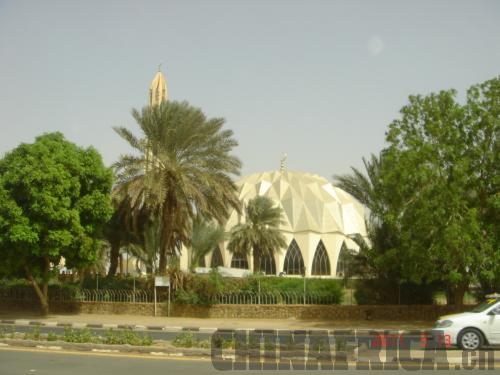| 
How much is actually known about Arab states – particularly that of Sudan in North Africa? Looking closely at this question, it becomes clear that there is much still unknown about this mysterious land.
When speaking about Sudan, words like "poverty," "disease," "war" and "famine" often spring to people's minds. Such impressions of the place may not be entirely accurate. According to those who have visited, the country has undergone and is still undergoing major changes. Its transformation is complex; some people are left feeling Sudan is on par with South Africa, while others equate it with Venezuela in South America. More and more countries have trained their focus on the African nation, entering into cooperation with Sudan on economics, trade and medical care.
In 2012, China Market Press published the Chinese book Discovering Sudan's Beauty by writing couple Wang Yan and Wu Fugui (Wang's husband). It presents to readers Sudan as seen through the authors' eyes.
Wang and Wu arrived to study and work in Sudan starting in 2002. During their nine years in the country, they traveled a lot. They took in its exotic vistas, immersed themselves in Sudanese society, and tried to form their views from this standpoint. While traveling around Sudan's various states, connecting with people from all walks of life, they witnessed a rapid change in its society. It left them with new thoughts and feelings; they were becoming acquainted with the country's landscape, wildlife, customs, art and modern architecture. And they were deeply impressed by the beauty of Sudan.
"Life glitters," is Wu's long-held belief in Discovering Sudan's Beauty. Tropical rainforests, acacia trees, mosques, Arabian camels and robes are all glittering subjects Wu captures in his writing. Set against a backdrop of Sudanese scenery, he presents readers a poetic country. Crystal, marble-like date, palm trees, conical farmhouses built in typical Arab-African style, ancient pyramids and the modern Burj Al-Fateh Hotel coexist in a fascinating tapestry. All are vividly depicted.
It is a book of nearly 260,000 words, with 80 chapters. The genre is three-pronged: a mixture of narrative, prose and travelogue. Wang and Wu cover Sudan from all sides, from tracing its history, civilization and unique folk customs to its rapid social changes, economic achievements and foreign relations, including its friendly relationship with China.
Perhaps it is a little excessive to claim Discovering Sudan's Beauty as a book that presents every facet of Sudan. Perspective is subjective after all. But Wang and Wu depict Sudan's landscape and society from the point of view of their personal experiences. Because of this angle, the book is worth reading.
Readers are given a close look at a seemingly veiled land, defined by unique culture, traditions and diet – the place where the prophet Mohammed was born. They are given insight into the changes Sudanese people and society are undergoing. And while the book caters to Chinese readers' desire to learn more about Sudan, it also doubles as a good guidebook for Chinese tourists. As H.E. Mr. Mirghani Mohamed Salih, Ambassador Extraordinary and Plenipotentiary of Sudan to China, writes in the preface of Discovering Sudan's Beauty, "Reading the book is a process of cultural exchange with Sudanese people, just like a real magical trip to the country." |